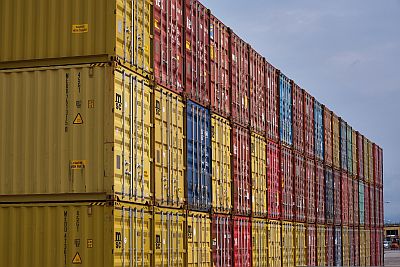
U.S. Trade Representative Katherine Tai will discuss the Biden administration’s 2024 trade policy agenda this week in hearings before the House Committee on Ways and Means and the Senate Committee on Finance. Here are five questions she should address.
Section 301 “China” tariffs have cost U.S. taxpayers $211.22 billion, more than $1,600 per household on average. These tariffs were supposed to eliminate unfair trade practices by Communist China related to intellectual property, innovation, and technology. The tariffs were slated to terminate in 2022, but the Biden administration kept them in place pending further review. What are the three most significant ways in which these tariffs succeeded in reducing unfair Chinese trade practices?
The United States maintains “national security” tariffs and quotas on imported steel and aluminum from U.S. allies ranging from Israel to Europe to Japan. How do steel and aluminum imports from Israel and other allies threaten U.S. national security?
According to the most recent Economic Report of the President, “There are well-documented gains from trade and cross-border investment flows. The benefits of global integration include lower inflation, a greater variety of goods and services, more innovation, higher productivity, good jobs for American workers in exporting sectors, foreign direct investment in U.S. industries, and a higher likelihood of achieving our climate goals.” In contrast, last year Amb. Tai said: “... we are not pursuing traditional fully liberalizing trade agreements because we see those as part of the problem that we are trying to correct.” Is it the Biden administration’s position that trade and investment flows provide well-documented gains, or that they are part of a problem that needs to be corrected? Does international commerce help reduce inflation, as the Report claims?
Regarding the proposed acquisition of U.S. Steel by Nippon Steel Corporation, President Biden said: “U.S. Steel has been an iconic American steel company for more than a century, and it is vital for it to remain an American steel company that is domestically owned and operated.” Does the Biden administration intend to follow recommendations by the Committee on Foreign Investment in the United States on whether the deal should be allowed to go through?
Treasury Secretary Janet Yellen has said the United States won’t take “anything off the table” with respect to Chinese overcapacity that drives down prices and boosts exports. The Biden administration has so far failed to initiate a single World Trade Organization (WTO) complaint against China’s overcapacity and other trade violations. Are WTO challenges on the table, or is Secretary Yellen simply referring to more import-tax increases?
If Amb. Tai does not address these questions in her prepared statement, NTU encourages legislators to ask her for clarification at this week’s hearings.

